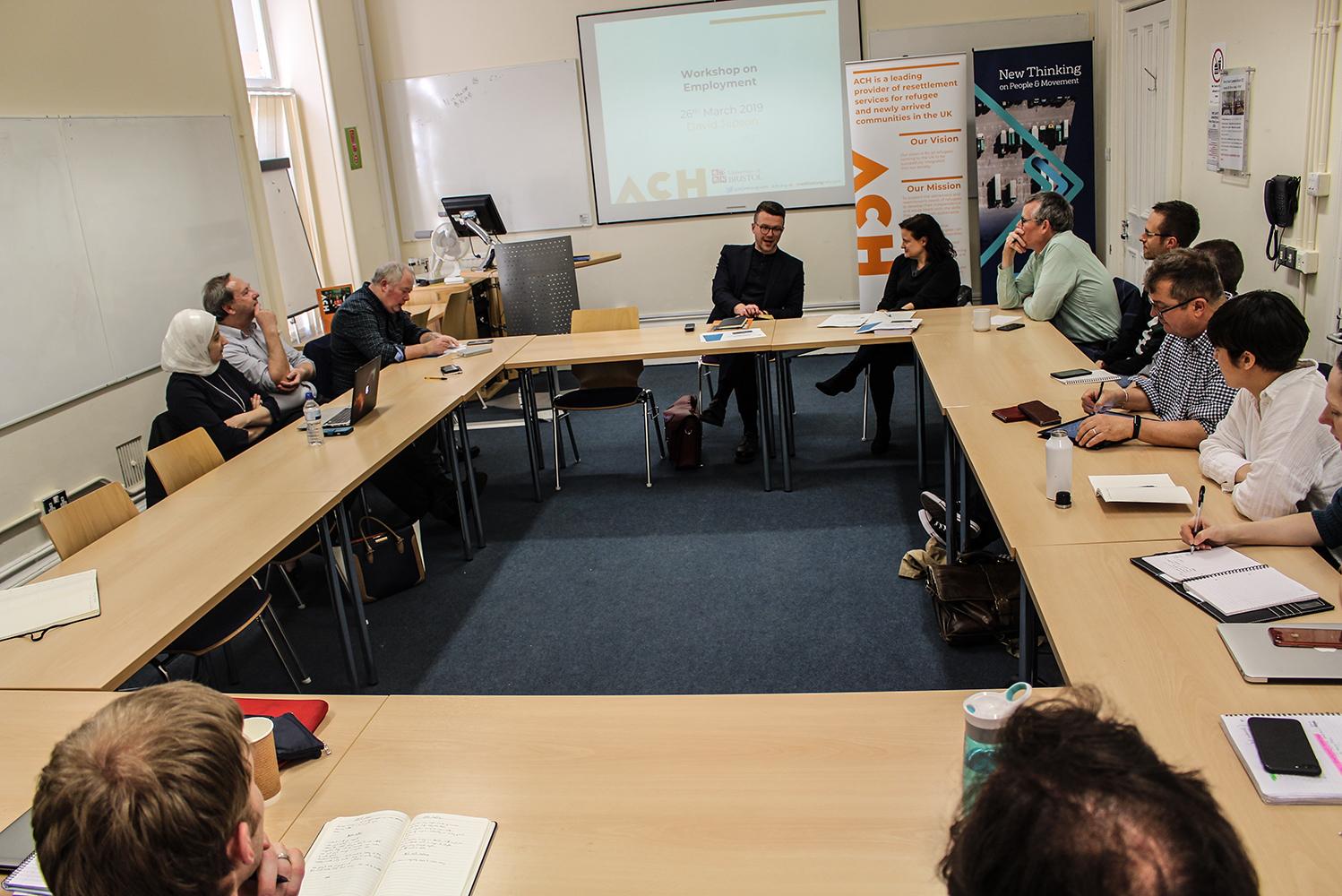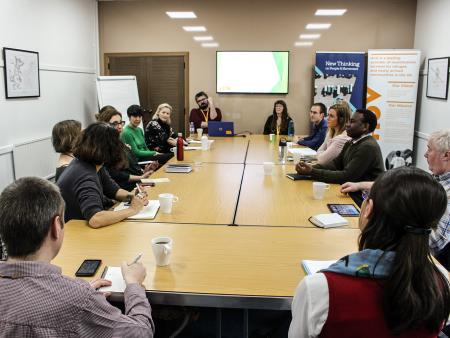
Employment and Economic Opportunity for Refugees and Migrants
Employment and economic opportunity were the topics of the latest ACH / Himilo and MMB (Migration Mobilities Bristol) collaborative workshop on topics relevant to refugees and migrants.
Huge changes to the labour market are underway, and digitalisation is changing how people are recruited and the kinds of work they do, not least in the phenomenon of the gig economy. Can these changes benefit refugees and migrants, and if so, how?
This was the second in a series of three joint workshops that aim to break down barriers between academic research and practitioner organisations and it was attended by around 20 people from a range of backgrounds and interests.
ACH / Himilo work with around 2500 people every year, aiming where possible to help individuals to gain median level jobs rather than simply entry level work. For example, we are currently working in partnership with First West of England to recruit and train members of the local community as bus drivers. Economic opportunity is central to building autonomy and facilitating what at ACH / Himilo we think of as ‘self-integration’, enabling participation in wider civil, community and social networks. The question is, how will people like our clients be impacted on by labour market changes?
Dr Harry Pitts, from the School of Management, said that these changes will undoubtably affect jobs, but the scale of change is difficult to predict. He discussed the problems associated with the kinds of precarious work generated by the gig economy, including the significant increase in false self-employment where workers lack genuine autonomy. He outlined examples of initiatives such as Smart in Belgium, which supports workers in this situation and so create opportunity in a more secure framework. This sort of initiative is beneficial to all freelancers, including refugee and migrant workers.
Changes to labour markets can offer the chance for excluded minorities to access new employment opportunities, said Professor Tonia Novitz from the School of Law, with examples including employment platforms and crowd-sourcing. However, they also posed risks. She outlined the important differences between status as an employee, a worker or a freelance ‘independent contractor’. Collective engagement and organisation are important here and new forms of interaction can be developed to facilitate association at work. She also explained that public authorities had a duty under the law in relation to diversity and employment.
Dr Laila Kasem, from the University of Worcester, has researched small businesses and self-employment of Syrian Refugees in the United Kingdom. Small business can be a flexible opportunity for economic empowerment but can also be the wrong choice for some. She highlighted the problems facing middle aged men who have worked for many years in a single trade which is regarded as outmoded in the UK. They can become very demotivated, and there is a need for them to have access to pathways to different forms of work.
It was very productive to have a discussion around the consequences for refugees and migrants of labour market changes, as debates tend to focus on their impact on the labour market, and often lead to them being scapegoated for wider problems. In fact, refugees and migrants bring diversity, skills and experience that can make our economy stronger. We need that. The workshop helped us to focus on how to build on this.
We look forward to the next event on 16th April which will discuss language.
Blog co-authored by:
Bridget Anderson, Professor of Migration, Mobilities and Citizenship, University of Bristol.
David Jepson, Director and Policy Advisor, ACH/Himilo.


